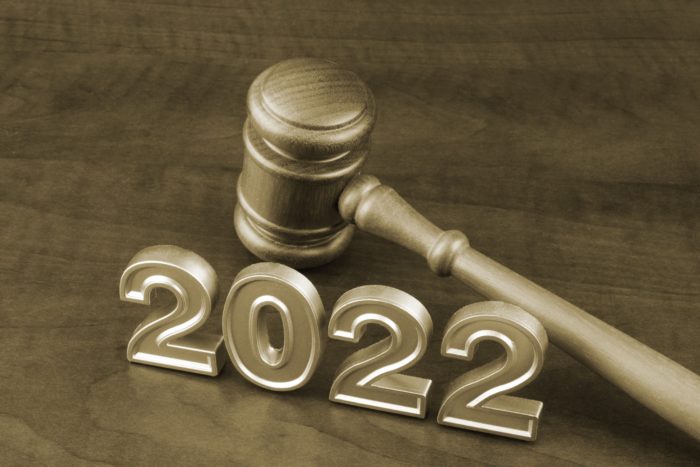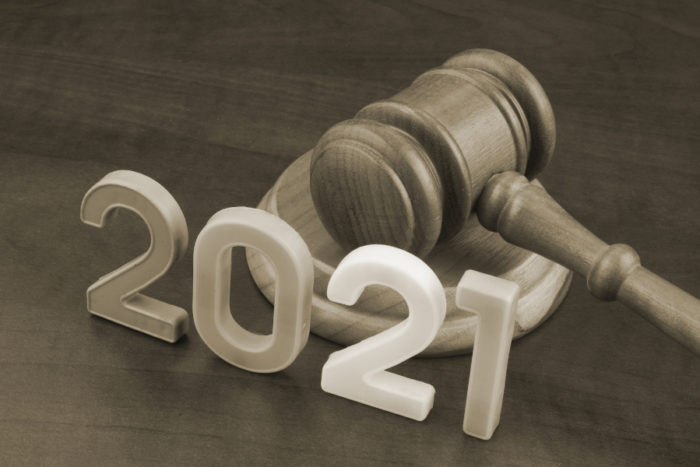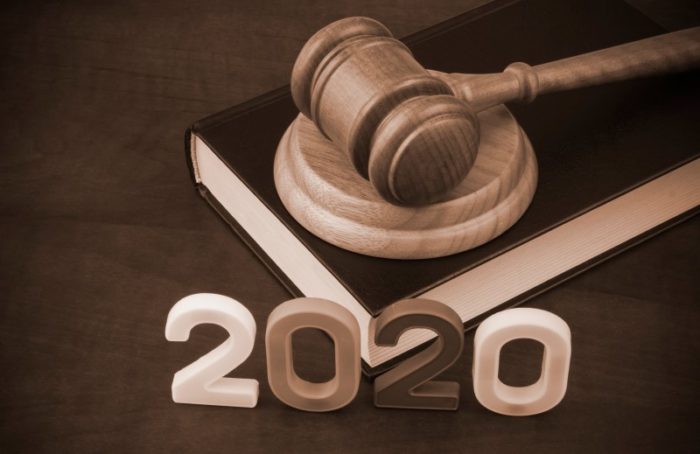
The new California Rules of Professional Conduct are sparking heated debate within the state’s legal community.
Rule 8.3 — dubbed pejoratively by some as the California “snitch rule” — requires attorneys to report other attorneys’ ethical misconduct.
Why did the Supreme Court of California recently approve Rule 8.3 after having been the only state not to have some version of ABA Model Rule 8.3 in the books? Continue reading to learn the background of the new rule, as well as its implications for reporting attorney misconduct in California.
Section 1
Section 2
Section 3
What Caused the State Bar to Adopt Its New California Rules of Professional Conduct?
In 2022, longtime prominent Los Angeles attorney Thomas Girardi was disbarred by the State Bar of California. He had been accused of taking millions of dollars that properly belonged to his law firm’s clients. It appeared that Girardi had been engaged in such misconduct for years. He was later criminally charged for wrongfully taking millions more. Given that someone must have known what Girardi had been doing, why wasn’t he stopped sooner?
One former employee at Girardi’s law firm reportedly stated that he knew Girardi had wrongfully taken settlement funds from at least one client, but that employee had not reported this to the State Bar because the Rules of Professional Conduct governing lawyers’ ethical misconduct at that time did not require such reporting.
One of the reactions to this sordid tale has been the adoption of Rule 8.3 to California’s Rules of Professional Conduct. In June 2023, the Supreme Court of California approved this new rule, effective as of August 1, 2023. California thereby became the last state in the Union to impose a duty on attorneys to report attorney misconduct by their peers.
What Are the Requirements of New Rule 8.3?
New Rule 8.3(a) requires a lawyer, “without undue delay,” to report to the State Bar or to “a tribunal with jurisdiction to investigate or act upon such misconduct” certain kinds of known misconduct of another lawyer.
“Knows” is defined in the rules as “actual knowledge of the fact in question.” The obligation is triggered when a lawyer “knows of credible evidence” that another lawyer has engaged in reportable conduct. Reportable conduct is “a criminal act or . . . conduct involving dishonesty, fraud, deceit, or reckless or intentional misrepresentation or misappropriation of funds or property that raises a substantial question as to that lawyer’s honesty, trustworthiness, or fitness as a lawyer in other respects.”
Rule 8.3(c) provides that the phrase “‘criminal act’ . . . excludes conduct that would be a criminal act in another state, United States territory, or foreign jurisdiction, but would not be a criminal act in California.” This rule notably leaves out of the exclusion conduct that is not a criminal act in California but is under federal law (such as the use of marijuana).
What Questions Does Rule 8.3 Fail to Answer?
Perhaps because Rule 8.3 is a new rule with no history of application in California, it leaves a number of questions unanswered about attorney ethical misconduct.
Does Rule 8.3 Require a Lawyer With Secondhand Knowledge of Another Lawyer’s Ethical Misconduct to Report?
For example, Rule 8.3 clearly requires one attorney who personally observes another attorney engage in reportable conduct to notify the proper authorities, because the first attorney would have actual knowledge based on credible evidence of the second attorney’s actions. But if a client of the first attorney complains about the second attorney’s conduct and gives “credible evidence” to the first attorney, does the first attorney have an obligation to report based on secondhand knowledge? And, if not at that point, does the first attorney have any obligation to investigate and then report, if appropriate?
Does Rule 8.3 Require a Lawyer to Further Investigate Secondhand Knowledge of Another Lawyer’s Misconduct?
Also, if the first attorney does not receive the information from a client but, for example, merely hears two other people in an elevator talk about potential misconduct of another attorney that, if true, would be reportable, does the first attorney have any duty to investigate further? New Rule 8.3 seems to be directed at reporting, not investigating, but it is not clear that circumstances such as these would never require investigation.
Does Rule 8.3 Require Attorney Misconduct in California to Be Reported to the State Bar or to a Tribunal?
New Rule 8.3 provides for a report to the State Bar or to a “tribunal.” (The tribunal alternative might be provided because there apparently were numerous complaints to the State Bar over the years about Girardi, but, until recently, those complaints never resulted in any discipline, and he maintained a clean bar record.) But to what tribunal can misconduct be reported, and is it ever mandatory to report to the tribunal rather than the State Bar? Comment 6 to the Rule states that “tribunal” means a judicial tribunal in which litigation is pending and to which the misconduct relates, and where such a tribunal “has the power to ‘investigate or act upon’ the alleged misconduct.”
Thus, if an attorney representing a party in a court case engages in ethics misconduct in connection with that case, any other attorney in the case would seem to be required to report such attorney misconduct, and it would be at least allowed (if not required) to report that misconduct to the court handling the case.
But if an attorney representing a nonparty (such as a person being deposed who is not a party in the case) engages in reportable conduct, may the report about the conduct of a nonparty’s attorney be made to the court, or only to the State Bar? And although the language of Rule 8.3 itself seems to allow the report to be made to the State Bar or a tribunal, Comment 6 to the Rule (emphasis added) talks about a “determination whether to report to a tribunal, instead of the State Bar, will depend on whether the misconduct arises during pending litigation and whether the particular tribunal has the power to ‘investigate or act upon’ the alleged misconduct.” This suggests (but does not clearly require), that some reports must be made to a court rather than to the State Bar.
Having to report to the court rather than to the State Bar might be problematic. A court might view a report by one side’s attorney against the other side’s attorney not as a sincere attempt to comply with Rule 8.3, but rather, as an attempt by the reporting attorney to gain an unfair litigation advantage over opposing counsel, thereby backfiring on the reporting attorney and that attorney’s client.
Being able to report to the State Bar rather than being compelled to report to the court could avoid this potential problem, but it is unclear whether Rule 8.3 requires a report to a court rather than to the State Bar in some situations.
Does Rule 8.3 Require an Attorney to Report Another Attorney’s Misconduct if Doing So Would Not Serve the Best Interests of a Client?
It’s also easy to imagine a situation where a client does not want his or her attorney to report misconduct by opposing counsel, or might be harmed by the report (including because it may disrupt settlement negotiations, delay a trial, etc. as the reported attorney deals with the report or is replaced by new counsel who must get up to speed on the pending court case). Must the client’s attorney report nonetheless if otherwise required by Rule 8.3?
Comment 3 to Rule 8.3 provides: “The duty to report without undue delay under paragraph (a) requires the lawyer to report as soon as the lawyer reasonably believes the reporting will not cause material prejudice or damage to the interests of a client of the lawyer or a client of the lawyer’s law firm.” (Emphasis added).
This does not remove the obligation to report, but it does require an attorney to delay reporting until reporting will not harm the interests of the reporting attorney’s client. But if, for some reason, a client demands the attorney not report and the attorney themselves determines that reporting would not cause material prejudice or damage to the client’s interests, then the attorney could be caught between being the client’s advocate and meeting their own ethical obligations under Rule 8.3.
Although reporting may be delayed as the parties pursue a settlement agreement, the comments to the rule provide that a settlement agreement cannot preclude the reporting of conduct within Rule 8.3. Comment 9 states: “A lawyer may also be disciplined for participating in an agreement that precludes the reporting of a violation of the rules.” This would seem to apply to all attorneys involved in a settlement agreement that purports to preclude the reporting of reportable conduct.
If the reporting attorney determines that delayed reporting is appropriate, that attorney must remember to advise the State Bar or court of the reportable conduct once the reason for the delay passes.

What Are Some Exceptions to the Reporting Requirement of Rule 8.3?
New Rule 8.3(d) also contains several exceptions. The rule not only does not require, but it does not authorize, disclosure of information that is:
- Gained while participating in a substance abuse or mental health program
- Protected by Business and Professions Code section 6068(e) (requiring attorneys to keep client confidences confidential) and Rules 1.6 and 8.2 of the Rules of Professional Conduct (both of which pertain to the operation of that statute)
- Subject to “mediation confidentiality”
- Protected by the attorney-client privilege or other applicable privileges
- Protected by “other rules or laws,” including Business and Professions Code section 6234 (concerning information obtained in the Attorney Diversion and Assistance Program).
There are some additional exceptions fleshed out in the comments to Rule 8.3. For example, Comment 2 states, “This rule does not apply to a lawyer who is consulted about or retained to represent a lawyer whose conduct is in question.” The same comment also excludes from the rule “a lawyer consulted in a professional capacity by another lawyer on whether the inquiring lawyer has a duty to report a third-party lawyer under this rule.”
Is It Safe for Attorneys to Report Other Attorneys’ Ethical Misconduct in California Without Incontrovertible Proof?
New Rule 8.3 requires an attorney with actual knowledge of credible evidence to report. This requires more than a mere suspicion, but it does not require incontrovertible proof before the reporting requirement arises. Certainly, there will be cases where, once all the facts are known, the suspected ethical misconduct did not occur or there is some valid defense or justification. In that circumstance, does the attorney who was accused have any remedy against the reporting attorney?
Comment 10 begins by promising that reports under New Rule 8.3 are privileged: “Communications to the State Bar relating to lawyer misconduct are ‘privileged, and no lawsuit predicated thereon may be instituted against any person.’ (Bus. & Prof. Code, § 6090.5.)” Therefore, reports to the State Bar are protected as long as they are made based on truthful – even if erroneous – statements. But Comment 10 also provides that “lawyers may be subject to criminal penalties for false and malicious reports or complaints filed with the State Bar or be subject to discipline or other penalties by offering false statements or false evidence to a tribunal.”
Also, there is no reference to any privilege if the report is made to a court rather than the State Bar. The litigation privilege found in Civil Code section 47(2) would not seem to provide any protection for reports to a court. It applies to communications: “(1) made in judicial or quasi-judicial proceedings; (2) by litigants or other participants authorized by law; (3) to achieve the objects of the litigation; and (4) that have some connection or logical relation to the action” (Silberg v. Anderson (1990) 50 Cal. 3d 209, 212) (emphasis added).
Because a report under the new rule is “to achieve the objects” of the State Bar to protect the public, it would not seem that a Rule 8.3 report would be “to achieve the objects” of any litigation. However, given that the purpose of Rule 8.3 is to protect the public from unethical attorneys, one might assume that some privilege for a report to a court would be found even if it is unclear what the legal basis would be.
Finally, Comment 8 makes clear that the following current rule is unchanged: “A lawyer must not threaten to present criminal, administrative[,] or disciplinary charges to obtain any advantage in a civil dispute in violation of Rule 3.10 [of the Rules of Professional Conduct].” The potential reporting attorney must either report or not. Such an attorney cannot threaten to report/offer to withhold reporting to gain some litigation advantage, such as by offering not to report if the accused attorney convinces that attorney’s client to settle or to drop a claim or defense.
While Imperfect, the New Attorney Ethical Misconduct Rule Is a Valuable Tool for Cracking Down on Wrongdoing by Attorneys in California
New Rule 8.3 brings to California the requirement already existing in some form in every other state that lawyers who observe reportable ethical misconduct by other lawyers must report that lawyer misconduct. Although the new rule could be problematic in some cases and raises a number of unanswered questions, which eventually will need to be fleshed out, it also seems to be a tool that may help identify and discipline those attorneys whose conduct does not meet the requirements of the Rules of Professional Conduct.





